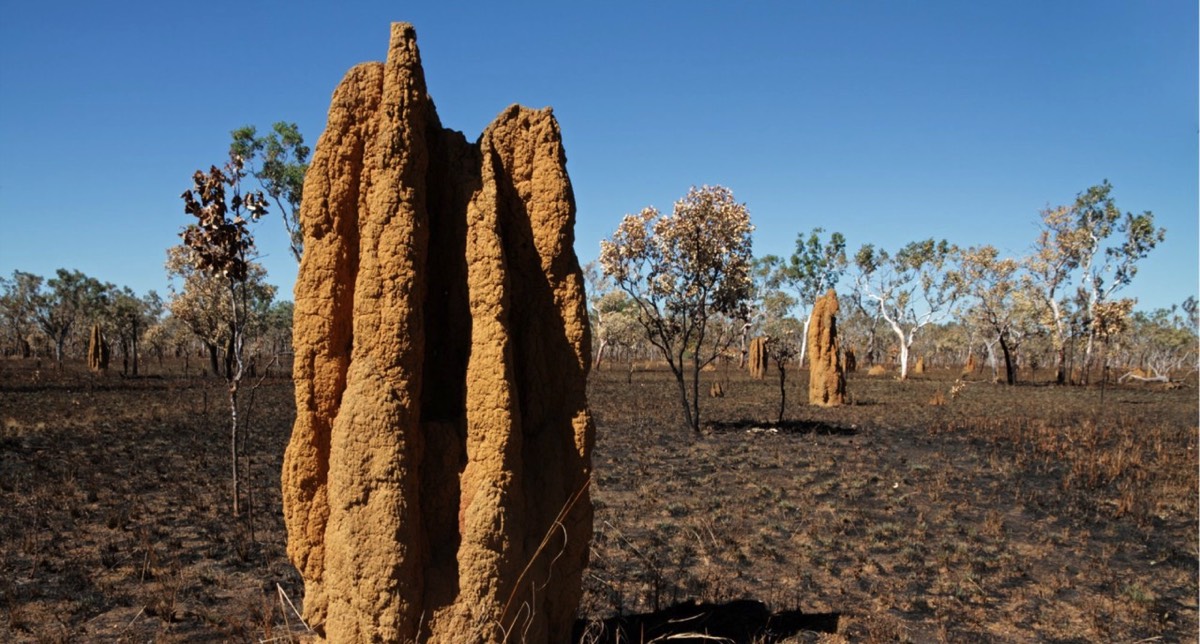Nature and Complexity
by Elaine Walker
by Elaine Walker

A cathedral termite mound, with more off in the distance.
The natural world is strikingly beautiful and ornately complex, from the large scale structure of the universe, to the sparkling galaxies, to Earth’s natural landscapes, to the minute detail of our own internal systems. Ancient people, to the best of their ability for logic, attributed the complicated perfection to supernatural forces, and even though we should know better by now, Western religions still generally believe that God deliberately designed and subsequently micromanages life on Earth.
But when we view the observable universe and any parts we can arbitrarily divide it into, it appears to behave as a holistic causal network, free from any bosses, middle management, or other types of micromanagers.
Indeed, pure anarchy is the nature of nature and the reason behind the qualities of nature that any decent human appreciates. Nothing about nature is random or arbitrary or “designed”, and it is because it is all connected. Many different types of experiments in many different fields demonstrate that the universe has its own mechanisms for coalescing and blooming with the complexity that we see all around and within us. Even pure mathematics alone—chaos dynamics—demonstrates this and has opened many people’s eyes to the cleverness and independence of the natural world.
We should also know better by now that people don’t need the “higher power” of government to design and forever micromanage every fragment of society.
Once someone learns even the most rudimentary mathematical explanation of chaos dynamics and begins to see the world through a “fractal geometer’s eye”, it seems like nonsense to assume that the complexity of the world must have been designed, and it seems equally like nonsense that society needs to be “designed”. Being exposed to a tiny bit of the right kind of simple recursive mathematics—or even the right kind of pictures—can go a long, long way for humanity to better grasp the nature of nature, which is forever bubbling with new ideas, is robust, and is creatively self-correcting.
Comment here